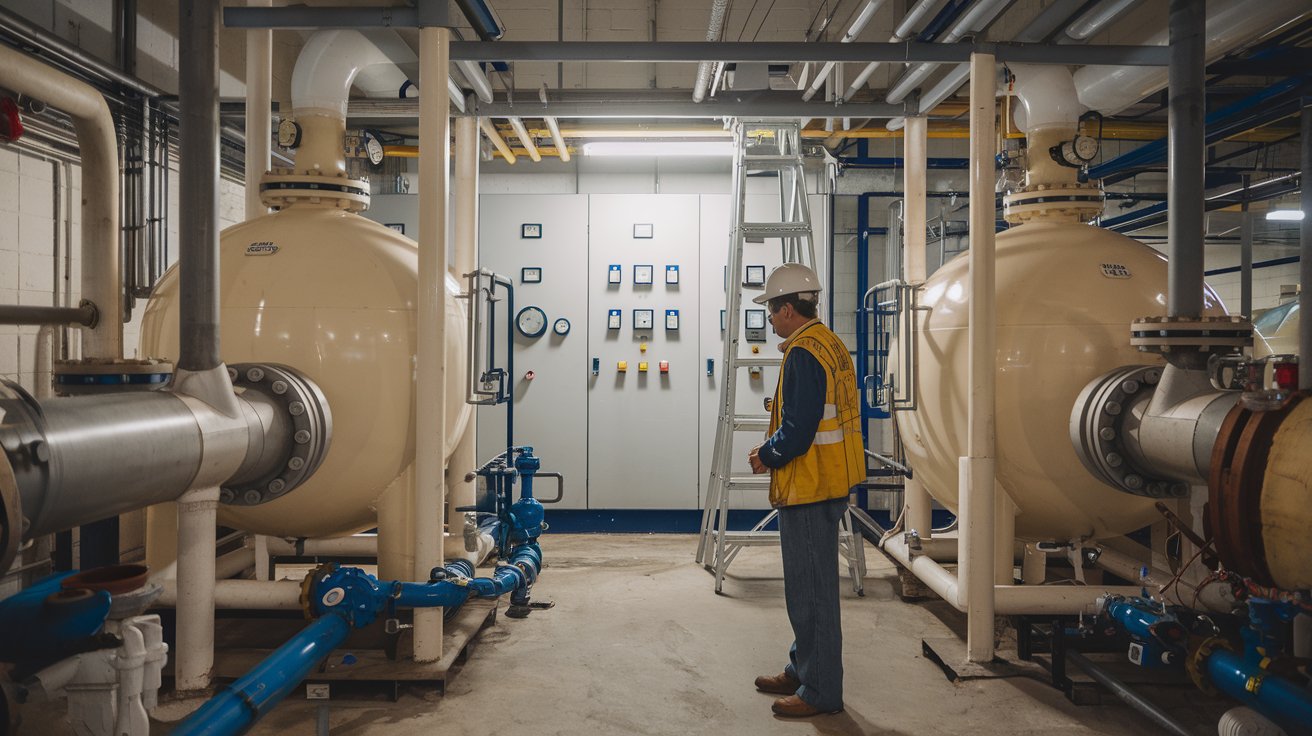In an era where businesses are under constant pressure to optimize operations and minimize expenses, water management remains a critical yet often overlooked aspect. Traditional wastewater management can be costly, inefficient, and prone to regulatory challenges. However, with the advent of smart wastewater monitoring, companies can transform their approach to wastewater treatment, reducing costs while ensuring compliance and sustainability.
The Hidden Costs of Inefficient Wastewater Management
Many industries, including manufacturing, food processing, and municipal water systems, rely on conventional wastewater treatment methods. However, outdated systems often lead to excessive water wastage, high energy consumption, and compliance issues. Frequent manual testing and reactive maintenance contribute to operational inefficiencies, increasing both direct and indirect costs.
Non-compliance with environmental regulations can result in hefty fines and legal challenges. Additionally, inefficient wastewater systems increase water consumption, leading to higher utility bills. These hidden expenses accumulate over time, creating a financial burden for businesses.
Smart Wastewater Monitoring: A Game-Changer
A Wastewater Monitoring system integrates advanced sensors, data analytics, and automation to track water quality in real time. By continuously analyzing parameters such as pH levels, chemical composition, and contaminants, these systems help industries make data-driven decisions. This proactive approach minimizes water wastage, reduces energy use, and prevents costly equipment failures.
The integration of artificial intelligence (AI) and Internet of Things (IoT) technology further enhances monitoring capabilities. AI-driven predictive analytics can forecast potential issues before they arise, allowing businesses to take preventive measures. IoT-enabled sensors provide real-time alerts, enabling quick responses to fluctuations in water quality, thereby preventing disruptions in operations.
Lowering Operational Costs Through Efficiency
By implementing smart wastewater monitoring, businesses can significantly reduce operational expenses in the following ways:
- Optimized Water Usage: Smart sensors track water flow and detect leaks or inefficiencies, reducing unnecessary water consumption.
- Energy Savings: Automated wastewater systems require less manual intervention, lowering energy costs associated with pumping, aeration, and filtration.
- Reduced Maintenance Costs: Continuous monitoring helps predict equipment failures, reducing the need for emergency repairs and unplanned downtime.
- Regulatory Compliance: Automated tracking and reporting ensure businesses meet environmental regulations, avoiding penalties and reputational risks.
Case Studies: Real-World Impact
Many industries have successfully implemented smart wastewater monitoring to drive cost savings. For example, a food processing plant in the U.S. integrated an IoT-based monitoring system, reducing its wastewater treatment costs by 30% within a year. By detecting high chemical usage in real time, the plant optimized its chemical treatment process, cutting down on unnecessary expenses.
Similarly, a textile manufacturer in Europe faced regulatory fines due to inconsistent wastewater quality. After adopting an AI-driven monitoring system, they achieved full compliance while reducing operational costs by 25%. The system provided real-time alerts on effluent quality, ensuring immediate corrective actions were taken before regulatory violations occurred.
Environmental Benefits and Corporate Sustainability
Beyond cost savings, smart wastewater monitoring aligns with global sustainability goals. Reducing water wastage and energy consumption helps businesses lower their carbon footprint. Many companies integrating smart wastewater solutions also enhance their corporate social responsibility (CSR) efforts, attracting environmentally conscious consumers and investors.
Water scarcity is a growing global issue, and industries must take responsibility for their consumption and waste. By using smart monitoring, businesses contribute to sustainable water management, preserving resources for future generations while maintaining economic efficiency.
Implementing a Smart Wastewater Monitoring Strategy
Transitioning to a smart wastewater monitoring system requires careful planning and investment. Businesses should start by assessing their existing wastewater management process and identifying key areas for improvement. Partnering with experienced technology providers ensures seamless integration with current operations.
Training employees to interpret data and respond to alerts is equally important. A well-informed workforce can maximize the benefits of smart monitoring by making proactive decisions that optimize efficiency. Regular system updates and maintenance further enhance long-term cost savings and operational effectiveness.
The Future of Wastewater Monitoring
As technology continues to evolve, the future of wastewater monitoring looks promising. Advancements in AI, machine learning, and automation will further refine real-time tracking and predictive maintenance capabilities. The adoption of blockchain technology may also enhance data security and regulatory transparency, providing businesses with an even stronger framework for compliance.
Governments and regulatory bodies are also encouraging the shift toward smart wastewater solutions. Incentives, tax benefits, and sustainability grants are becoming more prevalent, making it financially viable for industries to invest in modern wastewater monitoring technologies.
Conclusion
Smart wastewater monitoring is revolutionizing the way industries manage their wastewater treatment processes. By adopting these intelligent systems, businesses can significantly reduce operational costs, improve regulatory compliance, and contribute to a more sustainable future. With real-time data analytics, AI-driven insights, and IoT integration, industries can transform wastewater management from a costly burden into a strategic advantage.





